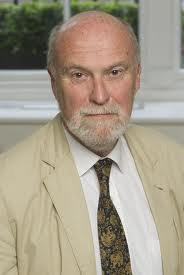Ian Linden: Twilight of Democracy

Professor Ian Linden. Image: RCDOW
What has gone wrong with Democracy and with our democracy here in Britain? Line up Trump and his followers, Putin's Russia, Orban's Hungary, Poland's Law & Justice Party, the Brothers of Italy as well as Johnson's popularity, rise and fall, and you can detect a certain commonality, a plausible story about the decline of democracy and the spread of authoritarian populism. That's why Anne Applebaum's slim Penguin volume "Twilight of Democracy: The Failure of Politics and The Parting of Friends", first published in 2020, received rave reviews and an immediate reprint.
A savvy journalist - liberal in the US sense - Applebaum weaves friends' political choices, and their subsequent changed relationships with her, into a wider analysis of the populist drift in Europe and the USA. And she does it very well. Twilight of Democracy provides an analysis of the fragmentation in the last decade of Centre-Right politics and the rise of right-wing authoritarianism. We have become accustomed to some of the proposed causes: the polarising role of social media, its deliberate manipulation to promote anger and resentment - and so more clicks - the 'cascades of falsehood', the conspiracy theories, 'the desire to belong to a superior community'. Applebaum explores such explanations. But there is a further 'why?' lurking unexplored behind these factors.
Applebaum's focus is inevitably on widespread generic causes given the great differences between the recent history of the different countries featured in her book. There is very little about the role of specific changes in countries' political economy, the impact - both social and personal - of striking inequality giving rise to emotions and a mindset attracted to radical authoritarian change. Sometimes, as in the distinction she makes between 'reflective' and 'restorative' nostalgia - those who miss the past but don't really want it back and those whose 'cultural despair' drives them to radical action to restore it - there are ideas that demand more consideration. A broad-brush approach can hide more than it reveals.
In Britain where a minority live very well, according to the Joseph Rowntree Association 4.1 million children, one in three in 2022, were living in poverty. Some 17% of households currently say they cannot afford any food at least one day a month whilst others are extraordinarily rich. Many must skip meals. But the coming years promise steady growth in fine dining restaurants. Such inequality generates anger and resentment that can be manipulated. Those so disadvantaged are offered scapegoats: immigrants, the EU, the 'woke' elite.
Some nine years ago, Fraser Nelson in the Spectator made telling comparisons between living standards in Britain and in the different US states. We came in at 49th out of 50 just ahead of the poorest state in the Union, Mississippi which has the lowest health, education, development and GDP per capita in the USA.
Will Hutton in a sobering opinion piece in the 13 August Observer writes about the consequences of persistent low productivity and low growth having become the norm. "Regions like the West Midlands, particularly economically linked to the EU, have been disproportionately badly hit". National debt has trebled in the last twenty years with 10% of government tax revenue now going on debt servicing. And Hutton cites John Burn Murdoch (Financial Times 11 August) that if you remove London from average British per capita GDP, it falls by 14-15% to below that of Mississippi. By way of comparison removing the economic hub of Munich from German figures produces only a 1% overall drop. Britain has entrenched poverty, geographical as well as class-based, and outside London is, according to Will Hutton, "scarcely better off than middle-income developing countries."
To read on see: www.ianlinden.com/latest-blogs/twilight-of-democracy
Professor Ian Linden is Visiting Professor at St Mary's University, Strawberry Hill, London. A past director of the Catholic Institute for International Relations, he was awarded a CMG for his work for human rights in 2000. He has also been an adviser on Europe and Justice and Peace issues to the Department of International Affairs of the Catholic Bishops Conference of England and Wales. Ian chairs a new charity for After-school schooling in Beirut for Syrian refugees and Lebanese kids in danger of dropping out partnering with CARITAS Lebanon and work on board of Las Casas Institute in Oxford with Richard Finn OP. His latest book was Global Catholicism published by Hurst in 2009.


















